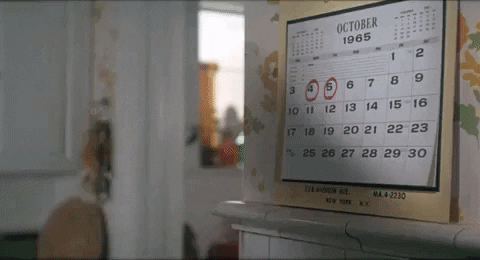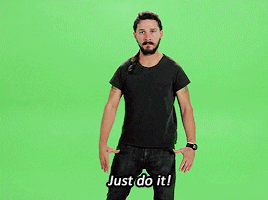Without team offsites, the last year has been incredibly difficult for teams to get together and strategise. With the blessing/curse of using Zoom/Teams/Hangouts for 2021 strategy days, it’s understandable that team leaders are fearing or even avoiding them. (“Another Zoom meeting… and this time it’s all day.”)
How do we make remote strategy days successful? Can we effectively reset and refocus our disparate teams for the year ahead? Here are 10 tips that could go some way to transforming a virtual strategy day.
-
Diarise the Date
Just like any other important task, we can’t be confident it’s happening until it’s in the diary. Book it in. When can we get the team online together? Diarising is close to prioritising. It says ‘this is happening’.

Even so, if the past year taught us anything, it’s that what we planned can always change. So don’t make a plan that is bound to change. A team day in the office in February might sound great, but is bound to be waylaid by restrictions. Planning a virtual strategy day later this month is much less fragile.
-
Take the Time
Once that day (or days) come around, it’s time to take the time it needs. Our clients or customers might not be chasing us for whether our Strategy Days are done, but they might just be key to how many clients or customers we have at the end of the year. They might just be the most important and non-urgent of the important and non-urgent tasks for our teams.
How long do we need? Let’s use that time. If it seems like a long time to be online, plan in breaks. Some people really need to realise that zoom calls can have coffee breaks. (And any call longer than 1.5 hours really should). Cutting short strategy days so as not to waste the team’s time might actually make them too short to have real impact (which definitely makes them a waste of time).
-
Make it Memorable
Just because we’re starring at each other through computer screens (goodbye, eye contact), doesn’t mean we can’t create a memorable experience for our strategy days. We could post out a strategy day pack that the team open together to have something tangible (that will last on after ‘End Meeting For All’ is clicked). Or post out doughnuts (which wouldn’t).

We could ask the team in advance to come prepared with a story/fact/item to be shared. Come ready to share your past year as a hand-drawn graph. Ask questions to get vulnerable. In fact, a lot of the those same things that make an in-person day memorable are actually still possible remotely.
-
Go Get Your Goals
Goal-setting is a key part of a strategy day. Whether we’re setting them on Post-Its, in journals, on an interactive whiteboard, these ambitions are what will carry your team through the year. Not everyone will have goals in mind going into a strategy day. Enable the team to discover the things that they really want from the year. Then go get them.
-
Paddle the Plan
Friend of Interactive Workshops, Emma Wiggs, Paralympic gold-medal winning Canoeist and co-writer of The A–Z of Human Performance, often uses the phrase her mum texted her one race day “Plan the paddle, paddle the plan.” It’s genius. Plan what you’re going to do that’s in your control. Then carry out that plan. It says nothing about trying really hard or beating your competitors. Just follow the process.
Strategy Days require the same amount of planning. We can’t go into a call with the whole team with the idea of winging it. We’ll be up a certain creek without a paddle. Plan the paddle. Then, as we go through the day, paddle the plan. Stick to it. Trust our own planning. Sure, flex to what comes. But always come back to the plan.

-
Get Personal (When It Comes to Goals)
So we’ve set our goals for the team, maybe the wider department or organisation too. What about for us personally as individuals. Who do we want to become this year? These kinds of goals are often overlooked as ‘not relevant’ or something to be done in employee’s own time. This is their time. And these personal goals can be so motivating that they drive an individual to grow exponentially, transforming their professional life with it.

-
Dive Into Discussion
No-one wants to be in one big group call for a whole day. Carefully manage discussion to add variety. Utilise breakouts, in pairs. Then in threes. Then split the room in half. Then in their teams or sub-teams. Back to pairs. Avoid Zoom Fatigue with Zoom Intrigue.
Then dive into those discussions. Open up a untouched topic. Brainstorm big ideas. Thrash out a problem. Find solutions together.

-
Share your Slip-ups
For a team willing to be vulnerable, noting down and sharing your biggest slip-ups of the past year can be a cathartic process that brings closure, maybe some forgiveness, and in our experience, laughs. Sharing the most embarrassing moments months later can bring a team together in a powerful way.

Often we knew about that ‘dropped the ball’ moment from a colleague. Other times they’ll share something we didn’t know they had been holding as a failure. Share slip-ups and then move on to…
-
Celebrate your Successes
Bringing light to any lingering shade of the slip ups, sharing the biggest successes of the past year is a powerful inspiration for the year ahead. It’s not to dwell on past success, but to make sure we squeezed all of the juice out of the team’s best work, brightest moments and when someone went the extra mile.
Maybe your team already has a way to celebrate success. Online, that could look like zoom emojis, a champagne (or suitable dry alternative) toast. Maybe this is the time to bring out the mini trophy in that pack you sent out. (Aren’t you thoughtful!?)
-
Commit.
We’re coming to the close of the strategy day. But one thing will be the difference between an enjoyable day and a lasting impact. Commitment. It’s not enough to have set goals, chatted about the problems and had a big idea for our next big thing. Finish the day by making commitment statements about what each individual is going to do. “I will…”
We can share what support we’ll need from the team to make it happen. “I’ll need X from team member Y.” Team member Y is right there on the call. Will you help with that Team Member Y? Yes? Great! We’re on to a winner. Words of commitment are a powerful binding agent for any team.

